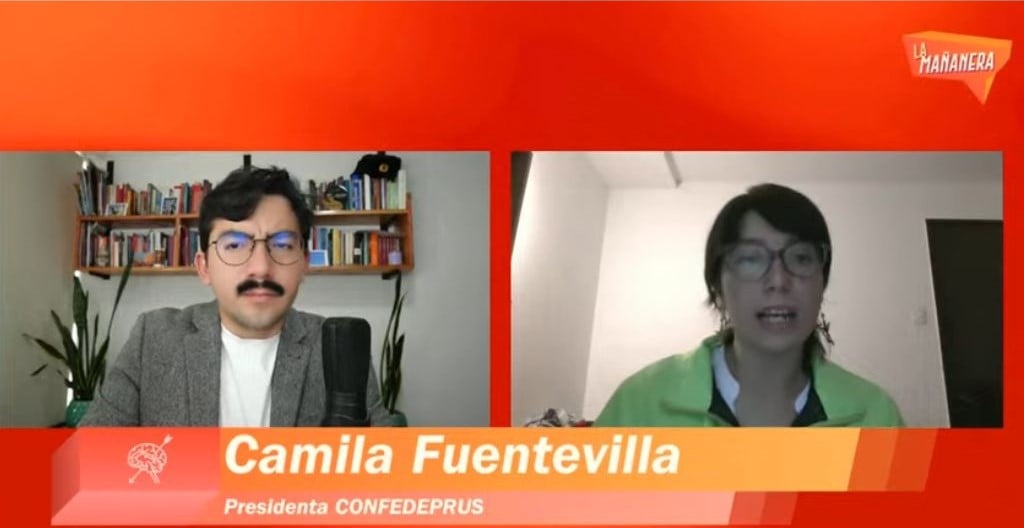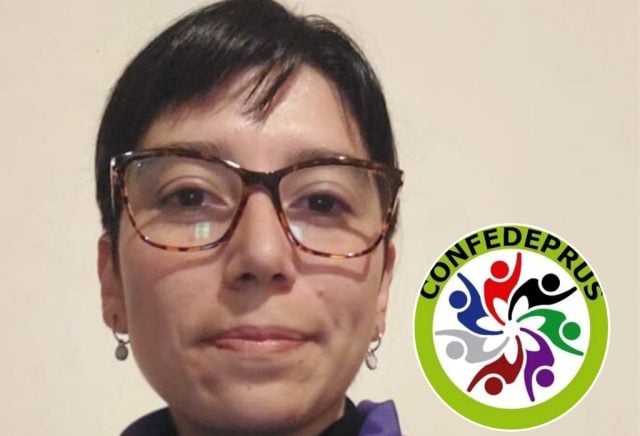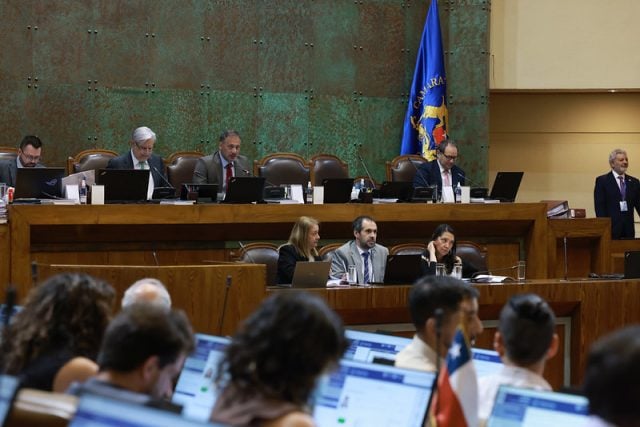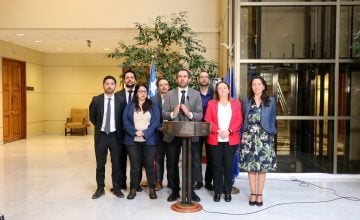Original article: “Si tienes menos personal, usas menos camas”: Confedeprus cuestiona los recortes que prometen candidatos de derecha en plena crisis de dotación
Confedeprus Raises Alarm Over Budget Cuts Proposed by Right-Wing Candidates Amid Staffing Crisis
Amid budget discussions and the presidential campaign, the Democratic Confederation of Health Professionals (Confedeprus) warns about the dangerous consequences that proposed spending cuts and reductions in staff by right-wing candidates could have on the public health system.
Camila Fuentevilla, president of Confedeprus, expressed her concerns during an interview on the program La Mañanera, hosted by El Ciudadano director Javier Pineda Olcay. She highlighted the rise of «conservative and somewhat anti-rights discourses» that are infiltrating electoral programs, alongside «an offensive against public service, particularly against public sector workers.»
The union leader pointed out that this first round of presidential elections is occurring amidst budget discussions, where it is alarming that «several candidates, particularly from specific sectors (the right), have practically competed on who can promise the biggest cuts to the national budget, when we know that the budget sustains public services.»
Fuentevilla described this stance as «contradictory,» saying that «if we aim to strengthen health, it must be accompanied by increased funding.»
This warning comes in a context where the budget has historically been «rejected by 90%, which has never happened before.»
Impact of Reducing Staff in the Health Sector
One of the critical points raised by Fuentevilla in her interview was the implementation of measures like the «3×1» policy, meaning that for every three workers who retire, only one is hired back. She called this proposal «completely unviable» for the health sector.
The Confedeprus president explained the direct relationship between staffing levels and hospital capacity with an analogy: «When you have fewer staff, you can utilize fewer beds. You can have amazing, state-of-the-art hospitals, but without trained and capable staff to manage them, it makes no sense,» she argued.
Regarding staffing projections, Fuentevilla noted that the current Budget Law Project «does not include an increase in personnel, except for very specific health services related to new hospital constructions.» She criticized that «the hiring of new personnel is not considered, except in some services 20 or 30 people, while in others it is 300, but only associated with new establishments being built.»
«This is also concerning because health is a sector that generally rises regardless of the government, as it is seen as an essential service, one that caters to life, available 24/7 from north to south, and thus must have the necessary capacity for this. Today, this has come under question, and that greatly worries us,» she pointed out.
The Absenteeism Crisis: A Symptom of Structural Problems
In response to criticisms regarding medical leave use included in some presidential programs, the leader made an important distinction: «We will not defend the misuse of medical leaves, but the health sector has seen absenteeism rise since the COVID-19 pandemic, which is also linked to the heavy workload during that period.»
«With all the uncertainty and fear, and the mental distress surrounding facing something unknown that indeed put our health and that of our families at risk,» she emphasized.
According to Confedeprus’s analysis, Fuentevilla asserted that «levels of absenteeism in the health sector are directly related to the absence of a state that can guarantee public policies to confront precarious conditions.»
She elaborated on the accumulated impact of the pandemic, stating, «If we had cases of staff contracting COVID-19, spreading it to family members who then passed away […] there is also accumulated harm in terms of mental health, which is reflected in the current absenteeism rates, understanding that the largest percentage is precisely due to mental health issues or musculoskeletal causes.»
Addressing Absenteeism “From the Root”
The organization has been clear in distinguishing itself from fraudulent sick leaves – indeed, in an editorial published on their website, they categorically rejected such practices that severely undermine integrity and service to the community, jeopardizing the credibility of public employment and the workers who serve the state.
However, they also expressed their discontent with the «political exploitation and disparagement discourses regarding public service from some sectors during election time, which promote ideas to weaken the state for the benefit of the private sector and see this as an opportunity to generalize such situations.»
In light of this scenario, they asserted that the solution must extend beyond punitive control.
«It seems insufficient and reductive to continue addressing the problem from a logic of control and suspicion, without tackling the structural factors affecting the physical and mental health of workers, especially in demanding areas like Public Health,» the confederation noted in the text.
In her statements to La Mañanera, the president of Confedeprus expressed that like many unions, they hope that «the issue of absenteeism can be addressed more structurally because we all want our absenteeism rates to decrease, but not through punitive measures, rather by addressing the matter from the root, which has an origin and is not the fault of the workers.»

Truly Strengthening the Public System
Camila Fuentevilla emphasized the need to address multiple fronts to genuinely strengthen the public health system, including resolving hospital debt, addressing waiting lists «but always with the aspiration to empower public services,» and solving infrastructure issues such as «the construction of the hospital for the northern zone of the Metropolitan Region, the commitment to build the new Carlos Van Buren Hospital [and] safeguarding the Metropolitan Hospital.»
In the electoral context, she urged not to lose sight of what is essential: «Health is a sector that generally rises regardless of the governments, as it is understood as an essential option that sustains life, which we attend 24/7 from north to south, meaning it must have the necessary capacity for that. Today, this has come into question, and it greatly worries us,» she pointed out.
When asked about the actions they are evaluating to highlight cuts in the Budget Law, Fuentevilla indicated that both Confedeprus and Confusam, along with other public sector organizations, plan to mobilize next Tuesday outside Congress, «specifically to demand a larger budget (…) along with demanding greater resources for community care.»
«This is not just an economic claim of the union, but also relates to ensuring health for everyone,» she emphasized.
«Regarding the public sector council, it is worth mentioning that we have recently been wrapping up the construction of our demand statement. There are several points already established that were communicated in the statement released yesterday from the council, where we state that we will demand a real adjustment of 2%, that is, above the CPI, the 40-hour workweek, defending union freedom, among other relevant issues. However, we highlight these topics transversally, since they are also commitments that this government made to the world of workers, which we think is important to signal in that direction,» she noted.
During the broadcast of La Mañanera on Friday, November 14, our director also analyzed the key points of the first round of presidential and parliamentary elections.
You can watch the full program below:










